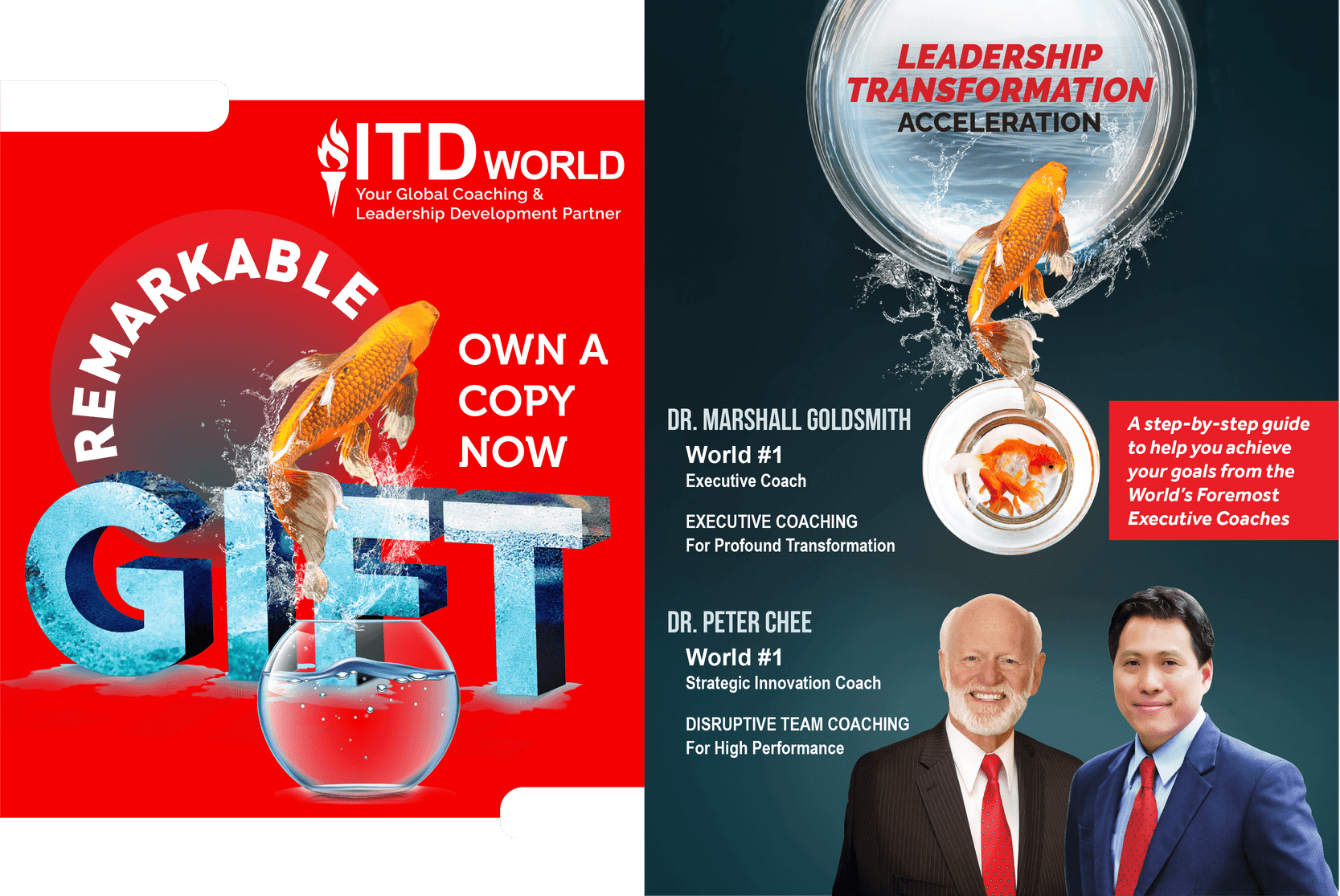


By Dr Peter Chee and Dr Jack Canfield
A great coach understands that fulfillment flows from adding value to others. They instinctively know that their life purpose to coach is a clarion command to serve a greater good. A lasting sense of joy and satisfaction is created when coaches fully live their life purpose centered on adding value to others. So how does coaching add value to others? Here are different ways how coaching makes a profound difference in the lives of others:
EUREKA VIDEO
A great coach understands that fulfillment flows from adding value to others. The instinctively know that their life purpose to coach is a clarion command to serve a greater good. Discover the five ways coaching makes a profound difference here
The coach helped James to identify what was causing feeling of emptiness. It was found that James was shoehorned into his current career by over-demanding parents. As someone who liked technology and computers, he preferred to be developing financial technology rather than working the trading floors. On his down time, he would read up on the latest fintech developments and dabbled in making his own finance apps.
The discovery came after the coach gave James a template to fill out each week over a period of 12 weeks. He wrote down what he did well and enjoyed doing at work. It was difficult at first, eventually the realization came when he compared what he liked to do against what he was good at. He liked to be involved in technology; but was good in trading.
This revelation broke open the dam in James. “I now know what I really liked and engages my giftedness. All these while I felt that I could be doing something else, knowing that I should embrace and combine my strengths and passions is a revelation indeed.”
So, by knowing what James wanted in life, the coach assisted him to map out a new career. A path which combined his skill in making successful trades, and his love for technological development. The breakthrough came when he made giant contributions to the digital development department in creating a trading app. This trading app for the client-facing side of the business enabled his organization to tap new markets and customer segments for business results.
By helping James experience fulfillment, the coach also feels the same. A fulfilling job engages the strengths and talents of a person in contributing to people, the organization, and the community. This applies both to the coach and to the coachee. Coaching can ultimately bring happiness, satisfaction, and meaning to the life of the coach, as well as to the people being coached.

When world-renowned leadership author Richard Boyatzis asked people who had been the most valuable people to them in their careers, he found that most people said that it was those who had helped them extend their dreams and reach for new positive experiences in their lives. On the other hand, those people who highlighted people’s faults and made others feel small were not valued.
There are many people in the world who seem to work very hard and achieve success, money, and fame—yet a true sense of lasting fulfillment is still largely absent from their lives because they have not dedicated themselves to serving a greater good. The positive emotions of true fulfillment tend to come most strongly as a result of hard work and sacrifice in the service of an end that is bigger than yourself.
Consider Nobel Prize winners such as Nelson Mandela, Albert Schweitzer, and Mother Teresa. These people were less interested in their positions or possessions than in their contributions to others. Study their lives and you will notice that they wanted to make things better for others. A coach who sincerely lives this principle does not see coaching as a task or a job but as a privileged calling. By doing so, he or she makes life really worth living. A coach’s fulfillment flows from adding value to others.

I don’t know what your destiny will be, but one thing I do know: The ones among you who will be really happy are those that have sought and found how to serve.
Albert Schweitzer

TRANSFORMATIONAL COACHING QUESTIONS
LATEST HAPPENINGS AT ITD WORLD
Harnessing the full potential of human capabilities for organizations is crucial in today’s rapidly changing world.
Get your answers on how to unleash potential at the ARTDO International World Conference at Danang City, Vietnam from 18 to 20 August, 2024.
More than 20 industry captains, experts, and gurus will share their wisdom during the three-day conference that aims to transform lives by unleashing the power of talent and skill development.
Those attending will delve into thought-provoking discussions, the latest best practices, and explore innovative strategies aimed at fostering personal and professional development.
to equip you and your team with the knowledge, skills, and tools to enable results. See you then!
How do you enable profound transformational growth? Here are 5 reasons the Certified Chief Master Coach (CCMC) program equips you with the powerful insights, skills, and tools to make tremendous impact in your life, work, and community.
The next intake kicks off on Sept 27, 2024. Register to reap the benefits of this game-changing program.



